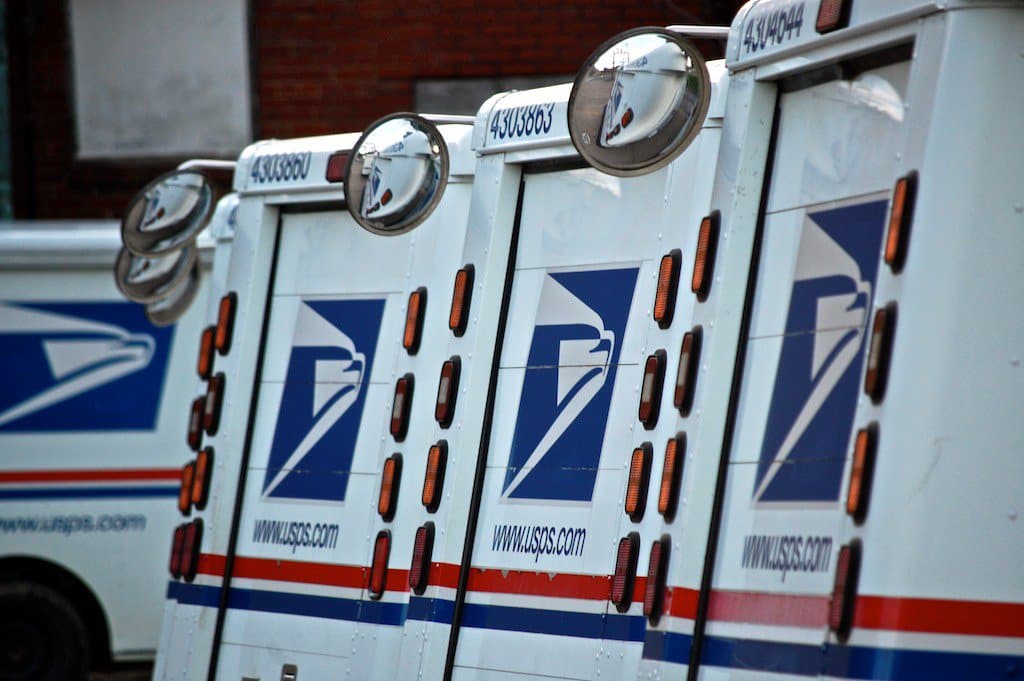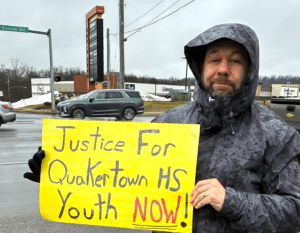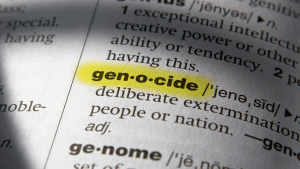The Trump Administration has been reviving plans to privatize the U.S. Postal Service (USPS). But many lawmakers don’t like the idea, including some from President Donald Trump’s own party.
“We are not going to privatize the Postal Service,” declared U.S. Representative Pete Stauber, Republican of Minnesota, at a March 25 rural letter carriers rally on Capitol Hill. “We rely on you to bring us our medicine, bring us our food, bring us our Social Security checks, bring us our documents that we need in a timely fashion.”
Stauber understands that if the U.S. Postal Service is sold off to for-profit corporations, many of his constituents in northern Minnesota’s Iron Range would almost certainly lose mail and package delivery at their homes—or have to pay an arm and a leg for it.
United Parcel Service (UPS) and FedEx already charge extra to bring packages to many ZIP codes in Stauber’s district. Let’s say you wrap up a three-pound gift to send to one of his rural constituents. These private companies will slap on a “remote area” surcharge of more than $15. Or say you live in one of the most far-flung Iron Range areas and can’t make it to a UPS site to drop off a package. Then you’re looking at a $30.50 fee for home pick-up.
USPS, as a public agency, has a Universal Service Obligation to provide affordable deliveries to all Americans, no matter where they live. They’ll pick up packages at your house for free and won’t hit you with delivery area surcharges. Since they’re already visiting every address six days a week, this adds little to their costs.
Without competition from this public service, for-profit firms would jack up delivery fees even higher on as many customers as possible. And it’s not just Americans living in rugged areas like the Iron Range who would face higher costs.
I know—I’ve looked into it. I am the author of a new report, “Who Would Pay the Biggest Price for Postal Privatization?” from the Institute for Policy Studies. The report found that 102 million Americans live in ZIP codes where UPS and FedEx already charge more for package deliveries. Not surprisingly, these include Hawaii, Alaska, and many rural areas. But they also apply to many small towns and suburbs throughout the country.
These extra fees are just a taste of what’s to come if the Trump Administration turns our public Postal Service over to corporations focused on maximizing profits. This past December, Trump said he was “looking at” a possible sell-off. And in early March, his chainsaw-wielding sidekick, Elon Musk, expressed his support. “I think we should privatize the Post Office,” Musk told an audience of Wall Street bankers. “We should privatize everything we possibly can.”
Amid this debate, Wells Fargo recently published a step-by-step guide to postal privatization. To attract private buyers, the bank’s investment analysts recommend raising USPS package rates by as much as 140 percent.
Meanwhile, bipartisan resistance in Congress is growing. Sixteen Republicans have joined Democrats in co-sponsoring Senate and House resolutions against postal privatization. Most of these members represent rural areas that rely on USPS for prescriptions and other essential deliveries, as well as for bill-paying and mail-in voting.
Not all Republican opponents of privatization hail from rural areas. Representative Andrew Garbarino, Republican of New York, for example, represents a Long Island district where, he recently told a group of USPS employees, “I can drive fifteen minutes in any direction and hit six post offices.” His support for USPS comes from observing privatization in other countries, noting that these experiments have led to higher costs and reduced service.
There are also many ways that USPS could raise new revenue while meeting social needs, such as expanding financial services or installing monitors on delivery vehicles to gather data on public safety risks, from potholes to pollution.
For Garbarino, protecting our public Postal Service is a no-brainer.
“I get a lot of calls in my office,” he told the workers. “Not one is someone complaining about their postal carrier—not one. Everyone loves their postal carrier.”
This column was produced for Progressive Perspectives, a project of The Progressive magazine, and distributed by Tribune News Service.






